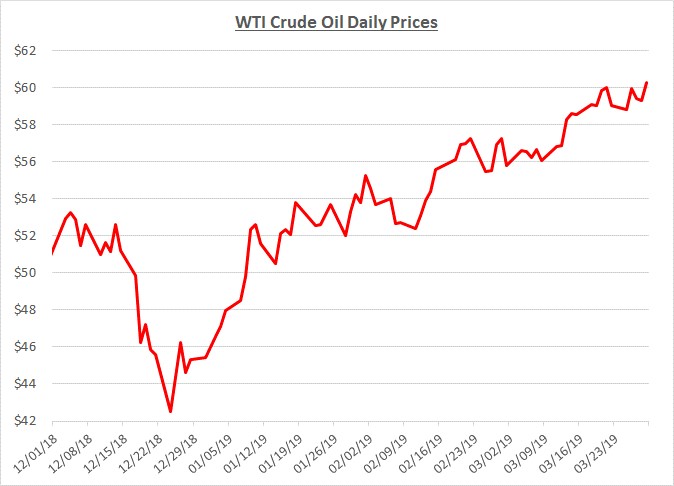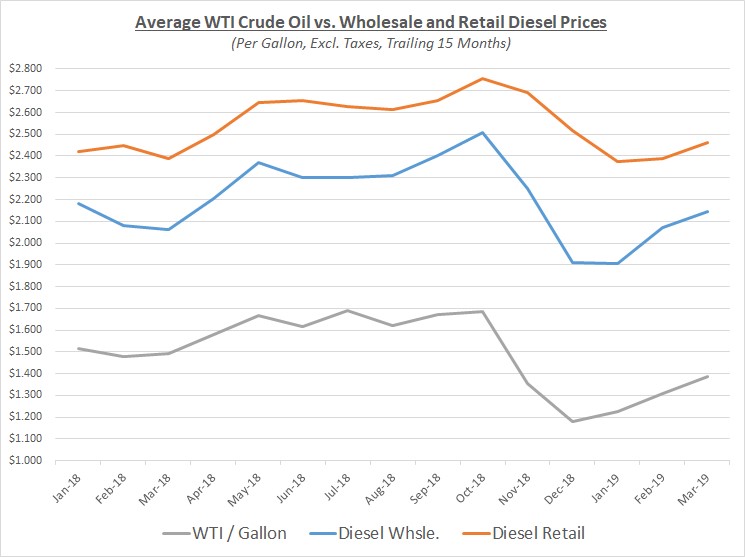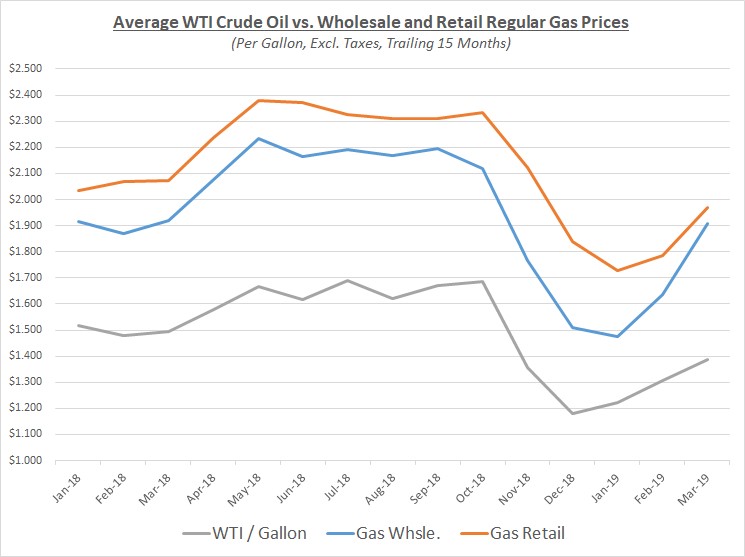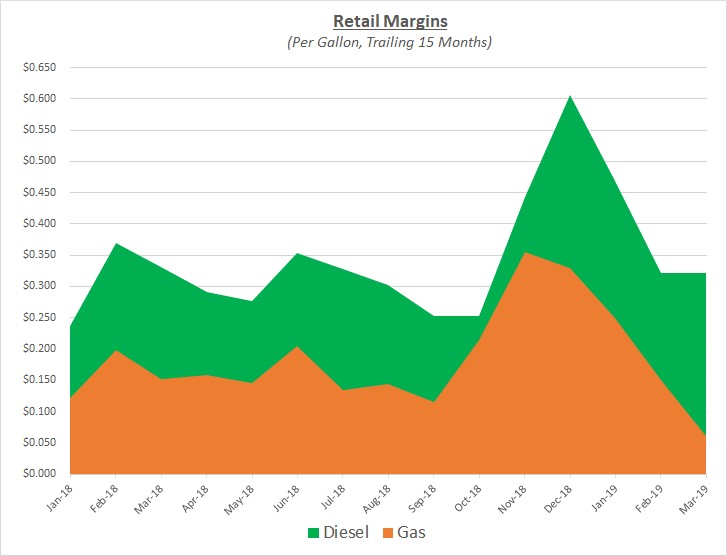During March 2019, oil prices traded near $56 per barrel for the first half of the month. Near the middle of the month, prices quickly jumped over $58. For the remainder of the month, prices traded in a narrow range near $59 and managed to close just over $60 by the end the month. Overall, prices rose by 5% during March and have increased by approximately 33% during the first quarter of 2019. The following graph shows the daily price movements over the past three months:

The overall increase during March was primarily caused by tighter oil supplies as a result of OPEC and Russia operating at reduced production levels. In addition, OPEC decided not to hold a meeting in March to reevaluate production, thereby, continuing forward with reduced daily output. Higher prices resulted from anticipation that supply and demand will reach a balance, followed by the market becoming under-supplied later in the year.
As oil prices increased during March, average wholesale prices for diesel and gas also increased. Retail prices for diesel increased at a similar rate as wholesale prices. However, gas retail prices increased at a much slower pace. The graphs below show the movement of crude oil (converted to gallons) along with wholesale and retail fuel prices over the trailing 15 months:


Due to the way diesel wholesale and retail prices moved in sync during March, average retail margins remained flat. For gas, lagging retail prices caused margins to sink below $0.10 per gallon which is one of the lowest levels in years. The following graph shows retail margins for diesel and gas over the trailing 15 months:

Sokolis anticipates oil prices will remain near $60 per barrel for a short-term period but will likely increase further during the second half of the year. As we’ve previously indicated, many factors support rising prices. These include production cuts by OPEC and Russia, economic sanctions on Venezuela and Iran, a potential trade agreement between the US and China, along with IMO 2020 requiring shipping vessels to burn cleaner fuel.
If you’re concerned about the impact of future fuel price changes for your fleet and want to know if you’re receiving the best fuel prices possible, contact Conor Proud at Sokolis, [email protected] or 267-482-6159. We are the nation’s leading independent fuel management consulting team and can help you make sure that your fuel management program is running at peak efficiency.